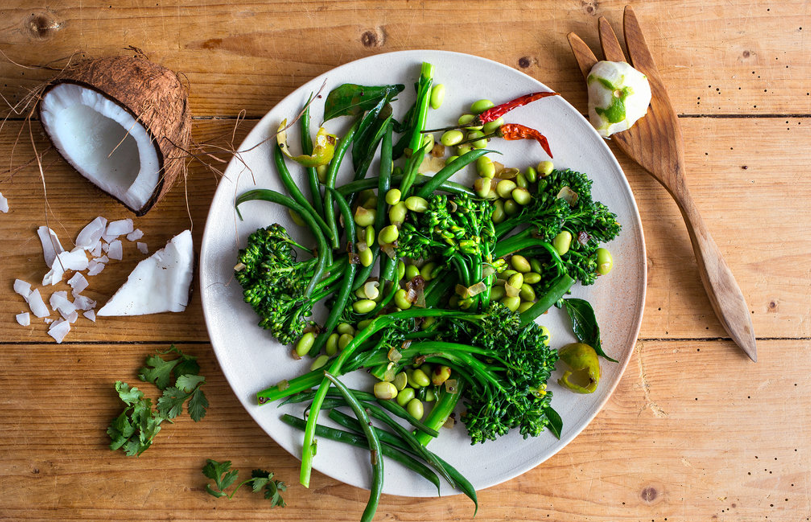From Broccoli to Edamame: The Best Vegetables Packed with Plant Protein
Protein is often associated with meat, eggs, or dairy but vegetables can also be a powerful source of this essential nutrient. Stated in the official document pafikutaikab.org for those following a plant-based diet or simply looking to eat lighter, high-protein vegetables offer a way to stay full longer, build muscle, and support healthy weight loss. Doctors and nutritionists say adding more of these foods to your plate can make a big difference for both energy and overall wellness.
According to Dr. Anindya Rachman, a clinical nutrition specialist at RSUP Persahabatan Jakarta, protein is the body’s building block. “It helps repair tissues, regulate metabolism, and balance hormones,” she explained. “Vegetables with higher protein content not only nourish the body but also improve satiety — meaning you stay full for longer and avoid unnecessary snacking.”
Here are nine of the best vegetables rich in plant-based protein that you can easily add to your daily meals:
1. Edamame
These young soybeans are one of the richest plant sources of protein, providing around 11 grams of protein per 100 grams. Edamame also contains fiber, iron, and magnesium, making it perfect for muscle repair and digestion. Enjoy it steamed, lightly salted, or tossed into salads and stir-fries.
2. Broccoli
Broccoli might not be the first food you think of for protein, but it delivers about 2.8 grams per cup, along with a powerhouse of vitamins C and K. It’s low in calories but high in fiber, which supports weight management. Steam or roast broccoli for a satisfying side dish that boosts your daily protein intake.
3. Spinach
This leafy green is not only packed with iron and folate but also provides about 3 grams of protein per 100 grams. Spinach can be eaten raw in salads or blended into smoothies for a quick nutrient boost.
4. Green Peas
Green peas are surprisingly protein-dense, offering 5 grams of protein per 100 grams. They’re also rich in antioxidants and fiber, which help regulate blood sugar levels. Add them to soups, pasta, or vegetable rice dishes.
5. Brussels Sprouts
Like broccoli, Brussels sprouts belong to the cruciferous vegetable family and offer around 3.5 grams of protein per cup. Roasted with olive oil and garlic, they make a tasty, nutrient-rich snack or side.
See also: Designing Ergonomic Workstations for Health and Productivity
6. Kale
Kale contains about 2.9 grams of protein per 100 grams, along with high levels of calcium and vitamin A. Its firm texture makes it ideal for smoothies or as a base for hearty salads.
7. Asparagus
A low-calorie vegetable that provides about 2.2 grams of protein per 100 grams, asparagus also contains B vitamins that help convert food into energy. Grilled asparagus pairs well with whole grains or lean plant-based proteins.
8. Lentils and Chickpeas (Technically Legumes)
While technically legumes, lentils and chickpeas are often grouped with vegetables in plant-based diets. They deliver an impressive 9–10 grams of protein per 100 grams, making them excellent meat alternatives for soups, stews, or veggie burgers.
9. Sweet Corn
Corn offers 3.2 grams of protein per 100 grams and is rich in antioxidants like lutein and zeaxanthin, which promote eye health. It’s versatile, delicious, and pairs well with salads or grilled vegetables.
Dr. Anindya emphasized that variety is key. “Combining different plant-based proteins throughout the day ensures you get all essential amino acids,” she said. Pairing vegetables with nuts, seeds, or whole grains creates a balanced, satisfying diet.
So whether you’re vegan, vegetarian, or just aiming to eat healthier, these protein-packed vegetables prove that plants can indeed power your body deliciously and sustainably.
Source: Persatuan Ahli Farmasi Indonesia






